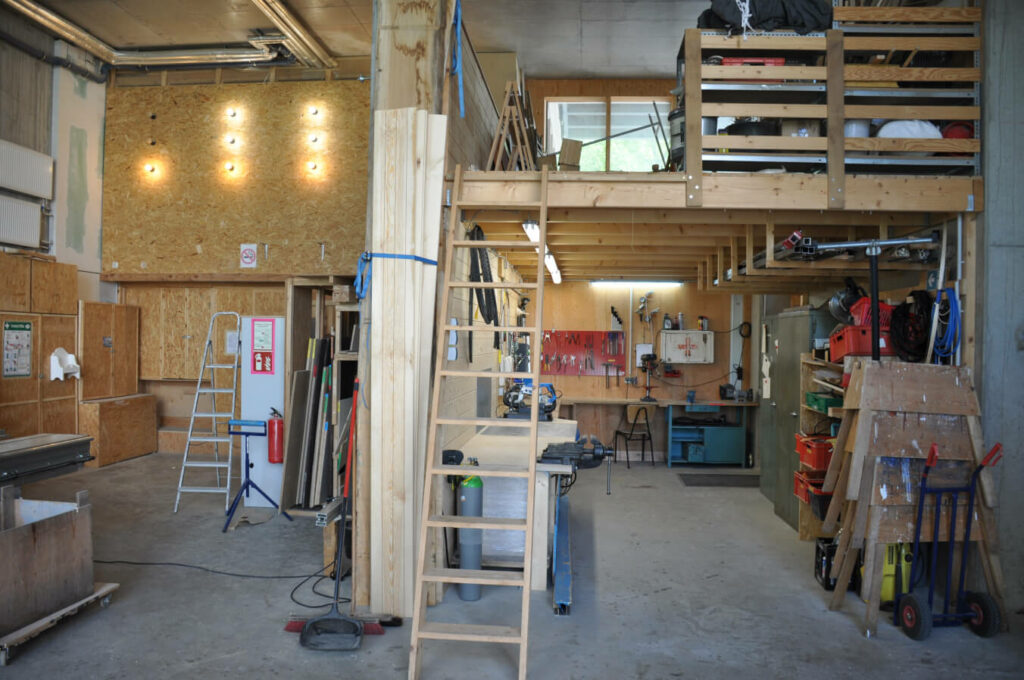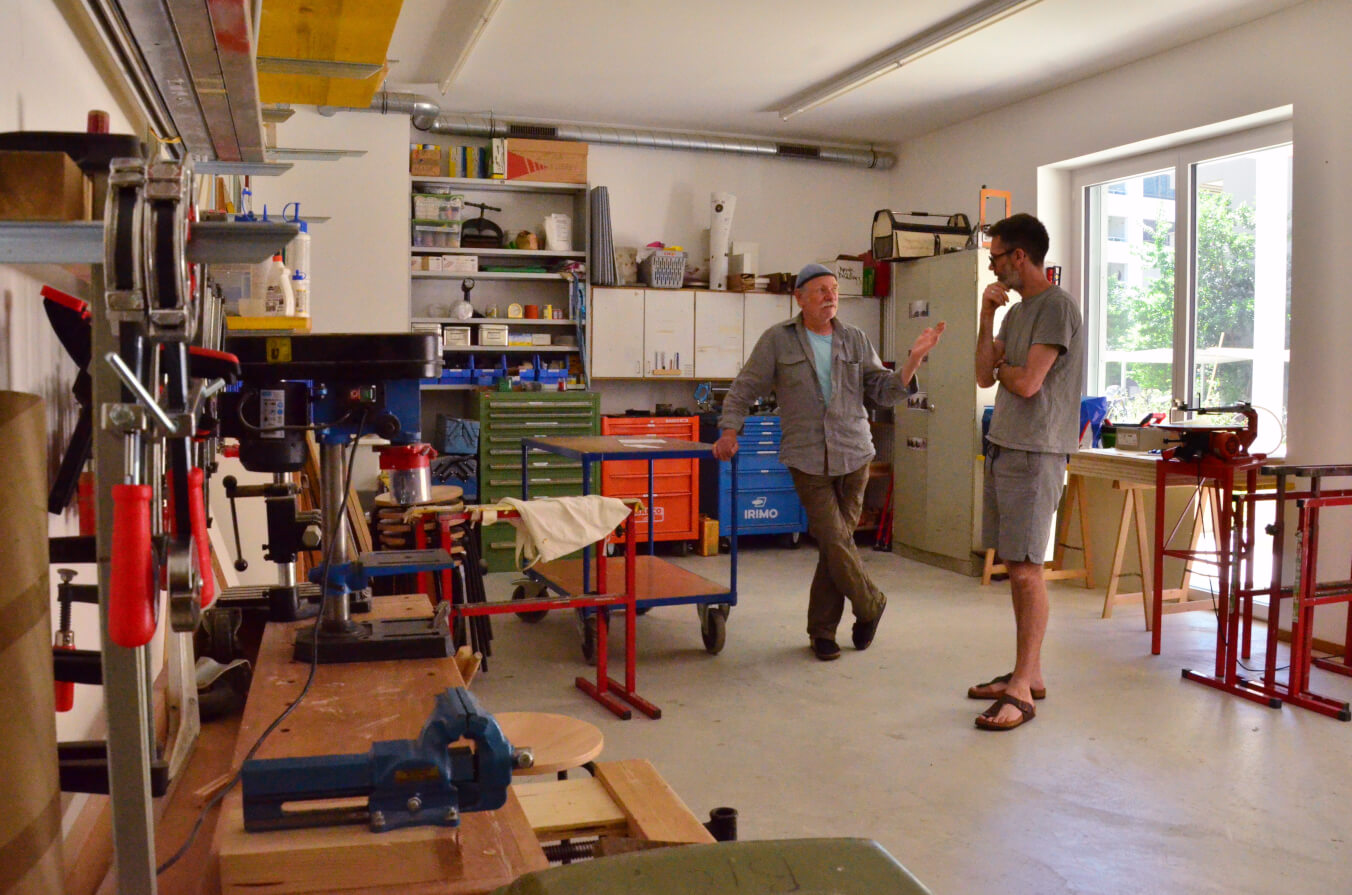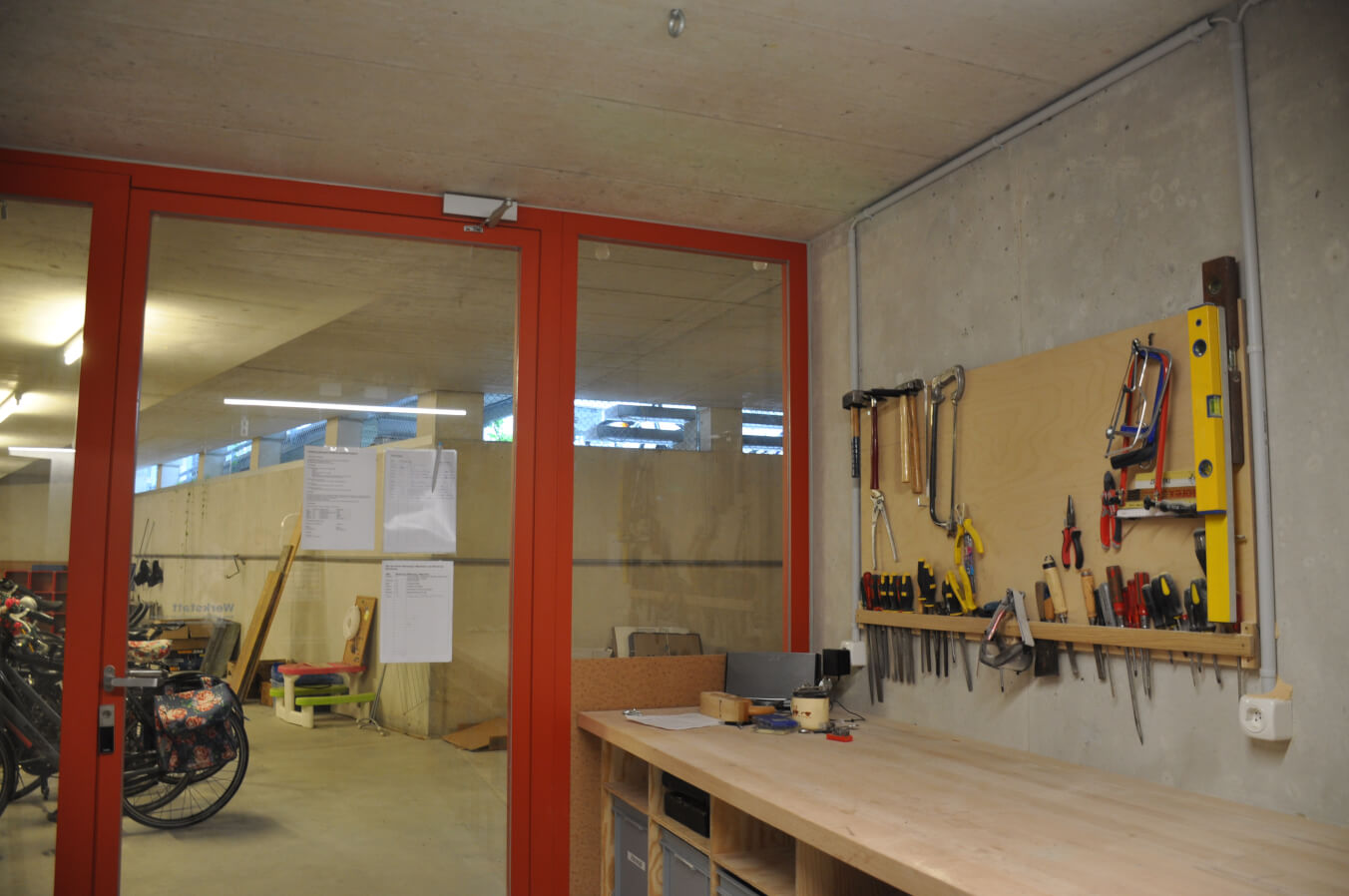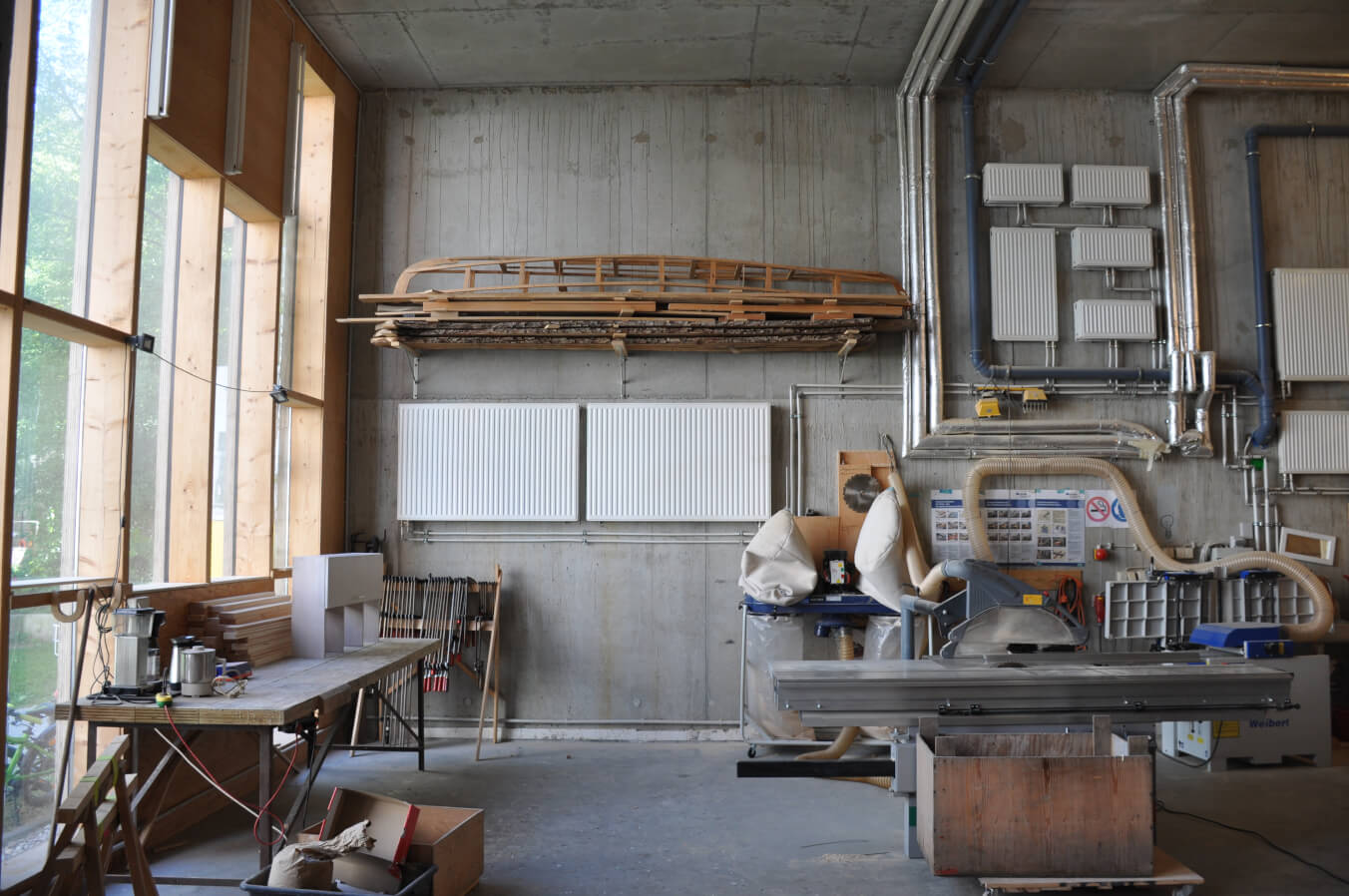Problem
The limitation of natural resources requires a changed way of production and consumption. Open workshops and repair cafés support a sustainable and solidarity-oriented way of life by providing a low-threshold offer for the production, repair and reuse of materials. What design options are there for these places? What impact can open workshops and repair cafés have on the neighbourhood?
Generic description
Open workshops and makerspaces can be places of collaborative peer production, innovation engines or places of the do-it-yourself movement that focuses on decentralised production methods. Open workshops are places where people come together to design, prototype or repair alone, together or under guidance. Premises and tools are available for this purpose and are open to all residents for free or low user fees. Repair cafés are mainly about extending the life of appliances or objects, often people bring their own broken household items for this purpose. These places invite people to work and learn together.
Example
The self-help workshop in the Heizenholz project is located in the basement, as is the consumption store and the rehearsal room. The location allows for undisturbed work with sometimes noisy tools. The workshop is one of their communal spaces.
In Spreefeld, one of the option rooms has been converted into a permanent workshop, which is also open to the neighbourhood and is an ideal place to make repairs, implement smaller construction projects and organise material-related workshops.



Lessons learned and synergies
Open workshops provide low-threshold access to repair services and tools that reduce material consumption and extend the life of products. In addition, objects that have been repaired themselves often take on a new value for the users. On a social level, the workshop supports self-organisation and communication within the neighbourhood. Questions regarding rules of use, fair usage times, responsibilities for cleaning and maintenance have to be discussed and agreed upon accordingly. Open workshops show the relevance of spatial designs that allow and encourage collaborative working, thereby promoting creativity, repairs and innovation. A wisely chosen location and suitable structural equipment to protect against sound and other emissions prevent conflicts of use and allow undisturbed use.
Sources
Kraftwerk1 Bau- und Wohngenossenschaft (2012): Heizenholz Siedlung. Accessed on 05.01.2021 from https://www.kraftwerk1.ch/heizenholz/siedlung.html
Simons, A., Petschow, U., Peuckert, J., 2016. Offene Werkstätten – nachhaltig innovativ? Potenziale gemeinsamen Arbeitens und Produzierens in der gesellschaftlichen Transformation, IÖW, Berlin.
